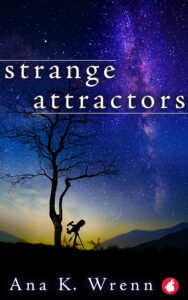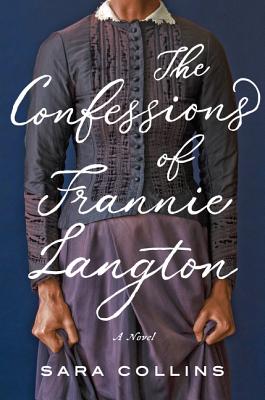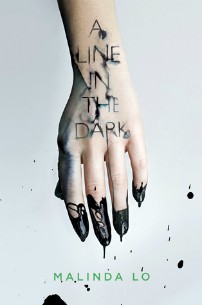Strange Attractors by Ana K. Wrenn was released in August 2022 and it follows the complex character of Sonja J. Storey. The book has been described as a psychological thriller, and it takes a deep dive into the darker side of academia. It is not a light and fluffy romance, but if you allow the main character to have her flaws, and go on her journey, it is a novel that will stay with you for a long time after you’re done reading. I am usually a pure romance kind of gal, so this was certainly a different novel for me, but I am glad I took the plunge.
Dr. Storey is a professor of chaos theory, and this novel takes you on a well-written roller coaster of what happens when life seemingly begins to imitate the very theory one teaches. Dr. Storey teaches at a small college in North Carolina and has plans to put the tiny school on the map. Not only does she believe she can do it, but she also has the drive to do so. It takes one post-it note to set Sonja’s arc in motion.
Interpersonally, Sonja is closed off and doesn’t make friends easily (or at all). It’s fair to say she intentionally pushes people away with her ultra icy exterior. The closest relationship she has is with that of her telescope, which seems fitting as it allows her to escape in the stars, a place seemingly uninhabited by people. Her telescope can’t let her down, can’t judge her, and can be directed only where she points.
Those around her wouldn’t hesitate to call Sonja all sorts of names, but as a reader, we are let into parts of her story that the people around her are not privy to. As you read this novel, and Dr. Storey’s past is revealed little by little, it is of little wonder that she interacts with the world around her the way she does.
Wrenn presents us with two characters in this book: Dr. Sonja J. Storey and junior professor Dr. Crystal Byrd. Where Sonja is closed off and receives every outside interaction with skepticism and a desire to exit the interaction immediately, Dr. Byrd is in many ways the opposite. Both have experienced trauma in their lives, but the path each has taken to both deal with that trauma and how they see the world around them couldn’t be more different. Where Sonja is closed off and icy, Crystal is open, warm, and friendly.
When the two women meet, it goes as you would expect, but there is something about Crystal Byrd that Sonja, despite her unwillingness to allow anyone in, can’t seem to stay away from. Crystal is persistent, but it’s also undeniable that Sonja finds her intriguing. Despite her misgivings, Sonja allows herself to become close to the other woman. In Crystal, Sonja finds someone who does not hesitate to push back and call her out for her behavior when the situation warrants. Crystal makes it clear she is there for her and there to support her, but Sonja has to put in the work. Crystal won’t be her savior.
Wrenn weaves a tale that will have you wondering and guessing about connections, past and present, and questioning if things are really as they appear.
Sonja J. Storey is a complex character with a lot of reasons to present herself to the world in the standoffish way she does. She is, at times, a cautionary tale of how our past influences the way we interpret and view the events of our life. Ultimately, I would consider Sonja’s story to be one of courage and of a character making the hard decision to move forward without constantly looking back. It lays bare the dark side of being a woman in academia and of a woman trying to escape a past that isn’t keen on letting her go.
Wrenn’s debut novel is smart, twisty, dark, and a read that will stay with you long after you’re done. There are scenes that serve as absolute gut punches—but this is not meant to be a Hallmark romance. Wrenn is brilliant in being able to set a scene so emotionally charged that I found myself holding my breath and heart. And it wasn’t just once.
I highly recommend Strange Attractors if you’re in the mood for something a little darker, and if you’re a fan of Ice Queens protected by an iceberg that makes the one that took down the Titanic look like an ice cube from your freezer. I maintain the freeze is understandable, but whether you agree will be up to you. I took this journey knowing that not everyone loved Sonja J. Storey, but love her or not, I encourage you to read with an eye to at least understanding her and the layers she possesses. When everyone around you, including those meant to protect you, have failed you over and over, self preservation tactics seem bound to kick in. I felt for her, and I was rooting for her. I think the sign of a good novel is one that, even when you’re done, you can’t stop thinking about it. Strange Attractors is that novel.
Content warnings: discussion of past abuse, descriptions of past sexual assaults.



